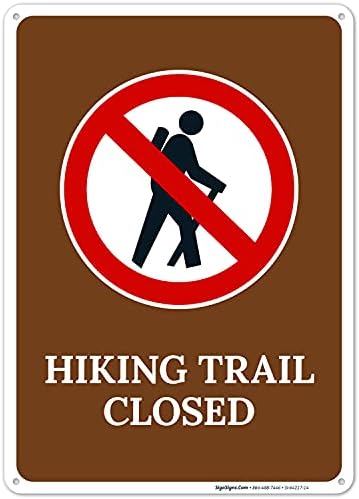EDITOR’S NOTE: It may become more difficult to access the beach with this recent court ruling as beach accesses are being closed in Tillamook County. Neal Lemery gives us a deeper look into the court case and this issue of “recreational immunity” and how it could greatly impact our access to beaches and trails. We’ve included information at the end to sign a petition to restore recreational immunity.
By Neal Lemery, for the Pioneer
Why is the Short Beach Access in Oceanside now closed? And there is talk of the potential closing of Rockaway Beach’s Old Cedar trail …
We need to look at a recent Oregon Court of Appeals decision focused on legal issues, recently denied review by the Oregon Supreme Court, to provide some answers. The court reviewed a decision on legal questions from the Lincoln County Circuit Court on a personal injury lawsuit. The decision is now settled law in Oregon and has caused local governments to review public access to public lands.
“Plaintiff fell while she was walking home from the beach on the trail that she used to get to and from Agate Beach. The trail is adjacent to Agate Beach, an ocean shore. The city improved and now maintains the trail, which consists of a series of connected walking surfaces, including existing city sidewalks, packed gravel pathways, and wooden bridges and boardwalks.” Fields v City of Newport, 326 Or App 764 (2023)(rev den)
The Court applied ORS 105.676:
“[I]t is the public policy of the State of Oregon to encourage owners of land to make their land available to the public for recreational purposes, * * * by limiting their liability toward persons entering thereon for such purposes * * *.”
“The state confers limited immunity in exchange for the public’s recreational use of land. There are two fundamental determinants that “give rise to recreational immunity”: ‘the landowners’ permission to use and the public’s use[.]’ Coleman v. Oregon Parks and Recreation Dept., 347 Or 94, 101, 217 P3d 651 (2009). The landowner’s permission to use must be without charge, id. at 96, and the public’s use must be primarily for recreation, ORS 105.682(1).
“ORS 105.682(1) is the source of recreational immunity, and it provides, as pertinent:
“* * * [S]ubject to the provisions of ORS 105.688, an owner of land is not liable in contract or tort for any personal injury * * * that arises out of the use of the land for recreational purposes * * * when the owner of land * * * permits any person to use the land for recreational purposes * * *. The limitation on liability provided by this section applies if the principal purpose for entry upon the land is for recreational purposes * * * and is not affected if the injury * * * occurs while the person entering land is engaging in activities
other than the use of the land for recreational purposes[.]”
“ORS 105.672(5) provides a non-exhaustive list of activities that qualify as recreational:
“ ‘Recreational purposes’ includes, but is not limited to, outdoor activities such as hunting, fishing, swimming, boating, camping, picnicking, hiking, nature study, outdoor educational activities, waterskiing, winter sports, viewing or enjoying historical, archaeological, scenic or scientific sites or volunteering for any public purpose project.”
“The immunity conferred by ORS 105.682(1) is made expressly “subject to the provisions of ORS 105.688,” which provides:
“Except as specifically provided in ORS 105.672 to 105.696, the immunities provided by ORS 105.682 apply to:
“(a) All land, including but not limited to land adjacent or contiguous to any bodies of water, watercourses or the ocean shore as defined by ORS 390.605;
“(b) All roads, bodies of water, watercourses, rights of way, buildings, fixtures and structures on the land described in paragraph (a) of this subsection;
“(c) All paths, trails, roads, watercourses and other rights of way while being used by a person to reach land for recreational purposes * * * that are on land adjacent to the land that the person intends to use for recreational purposes * * *, and that have not been improved, designed or maintained for the specific purpose of providing access for recreational purposes * * *; and
“(d) All machinery or equipment on the land described in paragraph (a) of this subsection.”
“The parties do not agree on the meaning of “recreational purposes” under ORS 105.682. The city argues that plaintiff’s principal purpose in using the trail was recreational and that the city is, therefore, entitled to recreational immunity from legal liability for her injuries. Plaintiff argues that she was using the trail primarily to gain access to Agate Beach. She likens the “activity of crossing a parcel of land, [which] by itself, is not a recreational purpose[,]” Liberty v. State Dept. of Transportation, 342 Or 11, 22, 148 P3d 909 (2006), to the activity of walking and argues that because recreation was not her primary purpose on the trail, ORS 105.682(1) simply does not apply and the city is not entitled to immunity.
“The trial court found that ‘[p]laintiff was walking her dog on a trail to the beach with a friend, a recreational purpose,’ and that ‘[t]he provisions of ORS 105.676 (Recreational Use Immunity) apply[ ]’ to immunize the city from any liability to plaintiff for the injuries that she sustained while on the trail.
In a prior Oregon Supreme Court decision, “the Supreme Court held that “crossing one person’s land to gain access to another person’s land to recreate there” does not itself constitute a recreational purpose and, therefore, does not entitle the owner of the land crossed to immunity under ORS 105.682.
The Court of Appeals quoted that Supreme Court opinion that held “[t]he activity of crossing a parcel of land, by itself, is not a recreational purpose.”
The Legislature responded to that earlier Supreme Court opinion by adding new statutory language expanding immunity to trails and road use that wasn’t recreational use, and not improved or maintained for recreational use.
In this case, the Court of Appeals wrote “To simplify, ORS 105.688(1)(c) extends recreational immunity to owners of unimproved, non-recreational trails and other rights of way.
“It is worth mentioning that limiting the immunity conferred by ORS 105.688(1)(c) to unimproved land is consistent with the quid pro quo exchange that justified recreational immunity in the first place—immunity conferred on the landowner in exchange for making land available for public recreational use. Once a landowner affirmatively undertakes to improve his property, the concepts of reasonable care and foreseeability shift, likely increasing the landowner’s corresponding level of responsibility and increasing the value of immunity to that landowner. One might reasonably expect the legislature to revisit the quid pro quo arrangement when the value exchanged on either side changes in a meaningful way,” wrote the Court of Appeals.
This case essentially says that Oregon law holds that if a local government improves and maintains a trail or roadway, and a person is not engaged in recreational activity when on that trail or roadway, and suffers an injury, the government has liability, and is not shielded by recreational immunity.
In this case, the injured person argued that they were using a trail for transportation. The trail was improved and maintained by the city. The case was sent back to the Circuit Court to determine whether or not Fields was recreating on the trail or merely using the trail for transportation back from the beach. If a jury finds that the use was recreational, then the city would enjoy recreational immunity from the injured person’s claim for damages.
It’s not just a walk in the park when it comes to liability for local governments. The issues and public policy issues are complicated and have been challenges for both legislators and judges, and certainly for local government leaders.
CIS, the Oregon association that provides liability insurance to Oregon cities and counties, has advised their clients to close access to roads and trails that are maintained by local governments when they are used for non-recreational purposes, as well as to add signage on public property that might be used for recreational purposes, warning the public of potential hazards.
For maintained areas, CIS advises local governments to have maintenance and inspection plans, which bolsters the defense of discretionary immunity.
It is expected that this issue will be back before the Legislature for additional statutory changes, or at least a debate on governmental liability and public use of public land, both for recreational and non-recreational use. The next legislative session is a short session in February, traditionally focused on finances.
EDITOR’S NOTE: You are encouraged to contact your legislators and let them know how important it is to restore recreational immunity. Protect Oregon Recreation, has created a website and an online petition for all Oregonians to make their voice heard on this issue. In addition, the League of Oregon Cities and the Association of Oregon Counties intends to bring a bill to the Legislature in 2024 to restore recreational immunity. Visit the Protect Oregon Recreation website, sign the petition to express your support for continued access to the outdoors.
To learn more and to access the Protect Oregon Recreation petition click here.
Disclaimer: This article is not intended to be legal advice. Readers should not rely on this article as a legal opinion, but merely as one view of a complex issue. You should consult your own legal advisor on what the law is, liability, and how public land is to be used.


